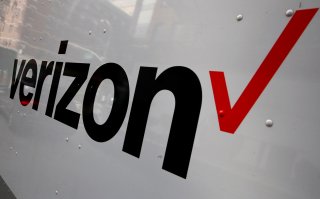Cable Is Dying? Verizon Fios Lost Another 72,000 TV Subscribers
This loss was “reflecting the ongoing shift from traditional linear video to over-the-top offerings.”
In quarterly earnings released Tuesday morning, Verizon said that it lost another 72,000 Fios video subscribers in the fourth quarter of 2020. Per the company, this loss was “reflecting the ongoing shift from traditional linear video to over-the-top offerings.”
Verizon had lost 61,000 subscribers to Fios in the third quarter, after that business lost 84,000 video subscribers in the first quarter of the year, and another 81,000 in the second quarter.
At the same time, the company added a net of 92,000 Fios Internet subscriptions in the quarter. Verizon had added 139,000 Internet subscribers in the third quarter.
It was, otherwise, a strong quarter for Verizon as a whole.
The company posted a net income of $4.7 billion in the last three months of 2020, which represented a 9.6 percent decline from the same period the year before. Verizon reported EPS of $1.11, compared to $1.23 in the same period in 2019. This beat analyst expectations, Yahoo Finance said.
In addition, Verizon’s consumer unit reported 357,000 wireless retail postpaid net additions, which included 163,000 phone net additions and 81,000 tablet net losses, the company said.
The Verizon Media unit, which now owns Yahoo, reported revenues of $2.3 billion in the fourth quarter, which the company attributed to “strong advertising trends.”
“2020 was marked by transformational change, including the launch of our 5G nationwide network. We witnessed a mass shift toward virtual collaboration, touchless retail and delivery, remote work, distance learning, and telemedicine,” CEO Hans Vestberg said in the earnings release.
“We continued to execute our multi-use network strategy; we were recognized by RootMetrics as the best overall wireless provider, undefeated in all categories; and we continue to be the partner of choice for the world’s most innovative brands. Today, we are excited to lead technological advances beyond mobile devices, and create new opportunities for growth across multiple industries.”
Verizon also released an outlook for 2021, predicting “service and other revenue growth of at least 2 percent, including total wireless service revenue growth of at least 3 percent.” Verizon also projected capital spending in the range of $17.5 billion to $18.5 billion, which will include the expansion of 5G Ultra Wideband.
During the quarter, Verizon reached a settlement with New York City, in a long-running dispute involving the installation of Fios in that city. The lawsuit had started in 2017 when the city government accused Verizon of reneging on an agreement to provide the service to the entire city. The agreement reached, Mayor Bill de Blasio said at the time, was meant especially to provide access to the Internet for lower-income New Yorkers.
Stephen Silver, a technology writer for the National Interest, is a journalist, essayist and film critic, who is also a contributor to Philly Voice, Philadelphia Weekly, the Jewish Telegraphic Agency, Living Life Fearless, Backstage magazine, Broad Street Review and Splice Today. The co-founder of the Philadelphia Film Critics Circle, Stephen lives in suburban Philadelphia with his wife and two sons. Follow him on Twitter at @StephenSilver.
Image: Reuters

